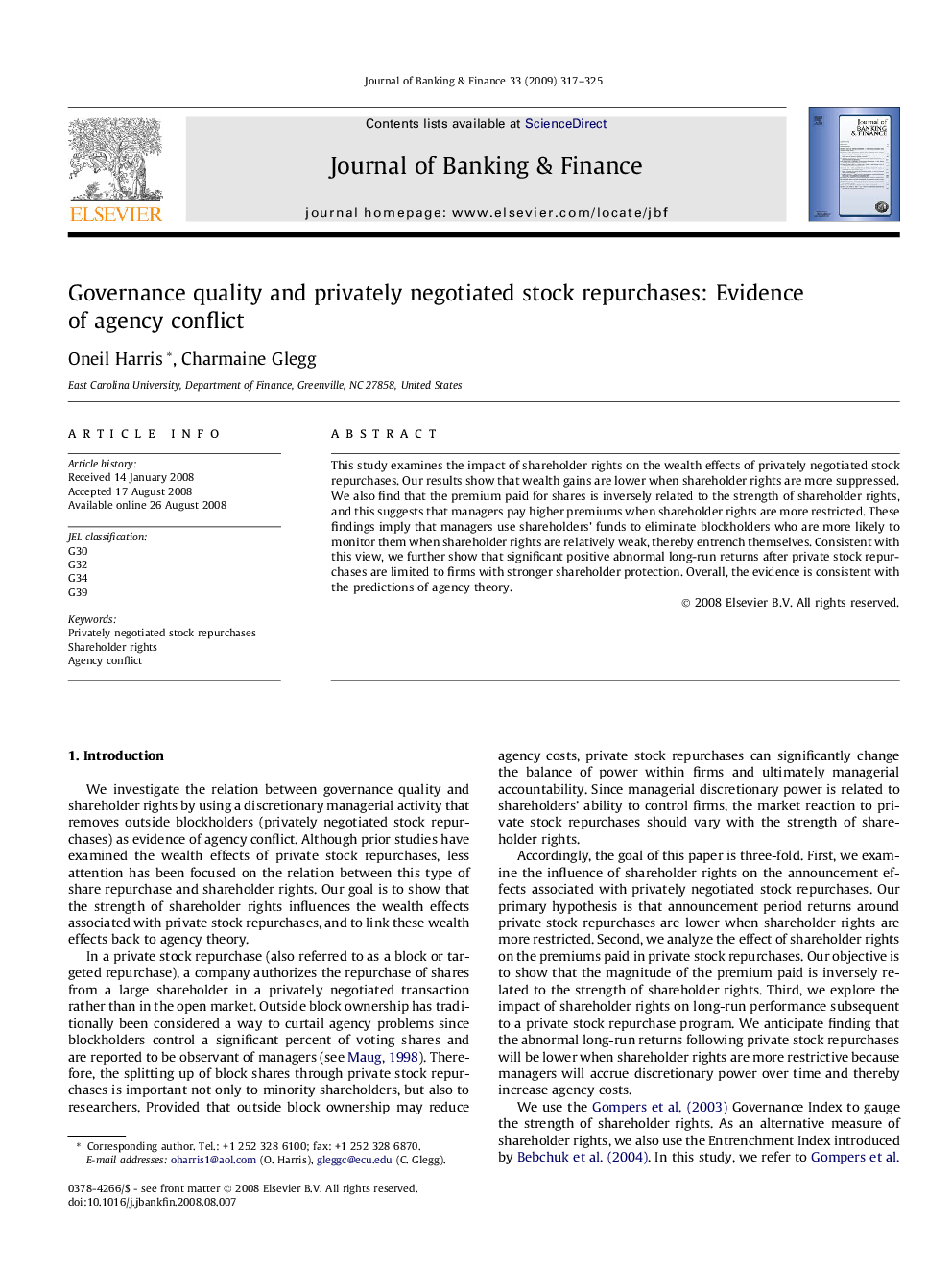| Article ID | Journal | Published Year | Pages | File Type |
|---|---|---|---|---|
| 5090528 | Journal of Banking & Finance | 2009 | 9 Pages |
Abstract
This study examines the impact of shareholder rights on the wealth effects of privately negotiated stock repurchases. Our results show that wealth gains are lower when shareholder rights are more suppressed. We also find that the premium paid for shares is inversely related to the strength of shareholder rights, and this suggests that managers pay higher premiums when shareholder rights are more restricted. These findings imply that managers use shareholders' funds to eliminate blockholders who are more likely to monitor them when shareholder rights are relatively weak, thereby entrench themselves. Consistent with this view, we further show that significant positive abnormal long-run returns after private stock repurchases are limited to firms with stronger shareholder protection. Overall, the evidence is consistent with the predictions of agency theory.
Related Topics
Social Sciences and Humanities
Economics, Econometrics and Finance
Economics and Econometrics
Authors
Oneil Harris, Charmaine Glegg,
